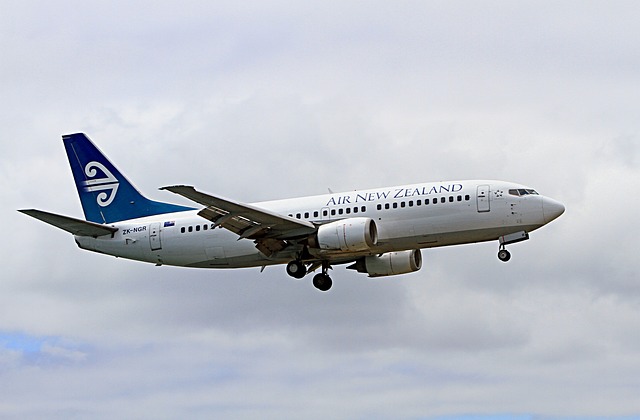Commercial vehicle insurance is a specialized type of auto insurance designed to provide coverage for vehicles used for business purposes. Whether you own a single delivery van or manage a fleet of trucks, this type of insurance ensures that your business assets are protected against accidents, theft, or damages. Understanding the importance of commercial vehicle insurance and the scenarios where it applies can help you make informed decisions to safeguard your business.
What Is Commercial Vehicle Insurance?
At its core, commercial vehicle insurance is tailored to cover vehicles primarily used for business operations. These vehicles include but are not limited to:
- Delivery vans
- Trucks
- Taxis or ride-share vehicles
- Construction vehicles, such as bulldozers and excavators
This insurance provides financial protection for your business by covering the costs of repairs, medical bills, and liability claims arising from accidents involving your commercial vehicles.
Why Do You Need Commercial Vehicle Insurance?
1. Legal Requirements
In most states and countries, having commercial vehicle insurance is mandatory for businesses operating vehicles. This requirement ensures that businesses can cover liability claims, reducing financial risks for all parties involved.
2. Protects Business Assets
Your commercial vehicles are significant investments and play a crucial role in your operations. Insurance helps protect these assets by covering repair or replacement costs in case of accidents or damages.
3. Covers Liability Claims
If one of your vehicles causes an accident, your business may be held liable for damages or injuries to others. Commercial vehicle insurance includes liability coverage to handle such claims, preventing significant out-of-pocket expenses.
4. Provides Specialized Coverage
Unlike personal auto insurance, commercial vehicle insurance offers tailored coverage options that cater to business-specific risks. These include:
- Higher liability limits
- Coverage for multiple drivers
- Protection for equipment or cargo carried in the vehicle
Explore more cost-saving strategies for commercial vehicle insurance in How Can You Reduce the Cost of Classic Car Insurance?.
Key Coverages in Commercial Vehicle Insurance
1. Liability Coverage
Liability insurance covers bodily injuries and property damage caused by your business vehicle. This includes:
- Medical expenses for injured parties
- Repair or replacement costs for damaged property
2. Collision Coverage
This covers damages to your vehicle caused by collisions with other vehicles or objects, regardless of who is at fault.
3. Comprehensive Coverage
Comprehensive coverage protects your vehicle against non-collision-related incidents, such as:
- Theft
- Vandalism
- Natural disasters (e.g., floods, hailstorms)
4. Uninsured/Underinsured Motorist Coverage
This coverage applies if your vehicle is involved in an accident with a driver who has insufficient or no insurance.
5. Cargo and Equipment Coverage
If your vehicles transport goods or equipment, this add-on covers the value of the cargo in case of theft or damage.
Common Exclusions in Commercial Vehicle Insurance
While commercial vehicle insurance provides extensive coverage, there are exclusions to be aware of, such as:
- Intentional damages caused by the driver
- Wear and tear or regular maintenance issues
- Using the vehicle outside its specified purpose
For a deeper dive into exclusions, check out What Should You Look for When Choosing a Classic Car Insurance Provider?.
Who Needs Commercial Vehicle Insurance?
This insurance is essential for businesses that:
- Use vehicles to transport goods or people
- Employ drivers to operate company vehicles
- Own or lease vehicles as part of their operations
Common industries that rely on commercial vehicle insurance include:
- Delivery and logistics
- Construction
- Ride-sharing and taxi services
- Retail and wholesale businesses
Benefits of Commercial Vehicle Insurance
1. Financial Protection
Accidents involving commercial vehicles can lead to significant expenses. Insurance mitigates these costs, protecting your bottom line.
2. Legal Compliance
Operating without the required insurance can result in hefty fines, license suspensions, or legal actions.
3. Peace of Mind
Knowing that your vehicles, drivers, and cargo are covered allows you to focus on growing your business without worrying about potential risks.
How to Choose the Right Policy
Selecting the best commercial vehicle insurance involves:
- Assessing Your Needs: Determine the type and level of coverage required based on your operations.
- Comparing Providers: Look for insurers specializing in commercial policies with strong customer reviews.
- Reviewing Coverage Options: Ensure the policy includes essential protections like liability, collision, and comprehensive coverage.
- Exploring Discounts: Ask about bundling options or discounts for safe driving records and secure storage.
Commercial vehicle insurance is a vital investment for any business relying on vehicles for operations. It not only ensures compliance with legal requirements but also provides essential financial protection against risks. By understanding your coverage needs and exploring available options, you can secure the right policy to protect your business assets and maintain operational stability.



